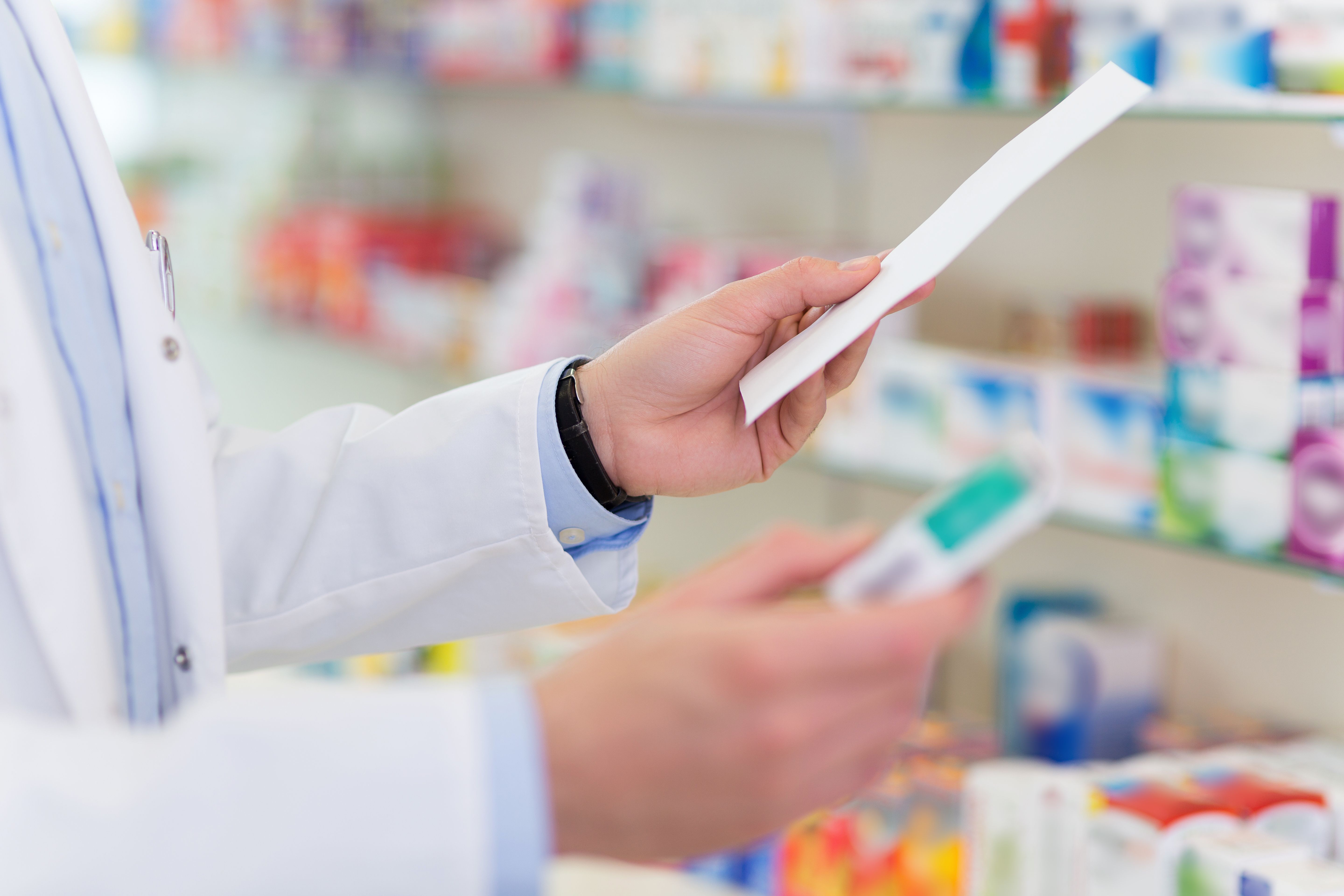- Bone Health
- Immunology
- Hematology
- Respiratory
- Dermatology
- Diabetes
- Gastroenterology
- Neurology
- Oncology
- Ophthalmology
- Rare Disease
- Rheumatology
Examining Attitudes in German, Swiss Pharmacists on Biosimilar Dispensing Pre- and Post Pandemic
A recent study found that the COVID-19 pandemic had little impact on the knowledge and attitudes of German and Swiss pharmacists regarding biologics and biosimilars between 2020 and 2022.
Pharmacist filling prescription in pharmacy | Image Credit: "Adobe Name" - stock.adobe.com

A survey questionnaire administered to German and Swiss pharmacists in prepandemic 2020 had patterns of repetition in postpandemic 2022 regarding knowledge of biosimilars, the technical definition, specific substitution laws by country, and attitudes when substituting with biosimilars.
Researchers used an online English-language survey questionnaire to collect data on pharmacists from Germany and Switzerland about how their knowledge and dispensing frequency of biologics and biosimilars changed from before and after the pandemic. The study was aiming to analyze and review pharmacists’ perceptions regarding dispensing biosimilar medications instead of the reference product.
The survey links were sent to Swiss pharmacists in February 2020 and June 2022, while German pharmacists received the links in May 2020 and June 2022. The 17 items of topic included characteristics of participants, definition of biosimilars, frequency of dispensing biologics and biosimilars, attitudes towards biosimilars, substitution and interchangeability of biosimilars, and information sources on biosimilars. In 2022, the survey added the topic regarding the impact COVID-19 had on their perceptions of biologics and biosimilars.
In total, 764 pharmacists participated in the surveys (n = 390 in 2020; n = 374 in 2022). The surveys included statistical data-based time frames to assess dispensing frequency, grouped into “≥2 times a week” and “≤1 time a week”. The researchers used the abbreviations “DE” to reference German pharmacists and “CH” to reference Swiss pharmacists. Knowledge was determined using questions where participants had to correctly identify definitions for biologics and biosimilars as well as their countries’ substitution laws.
There were no major differences in frequency of dispensing biologics among German or Swiss participants from 2020 to 2022 (≥ 2 times a week: DE, 67.9% vs 53.3% and CH, 54.8% vs 56.4%; ≤ once a week: DE, 32.1% vs 46.7% and CH, 56.4% vs 43.6%, respectively). However, Swiss pharmacists increased their dispensing frequency of biosimilars from 2020 to 2022 to more than twice a week (9.7% to 23.8%; P < .01).
Both German and Swiss pharmacists did not have significant differences in knowledge of the term “biosimilars” in either year. In 2020, 41.7% of German pharmacists and 50% of Swiss pharmacists accurately defined the term biosimilars on the survey. All participants had at least heard of the term biosimilar. However, the most common misconception was a biosimilar labeled as a generic biologic (DE: n = 46 in 2020; n = 34 in 2022 vs CH: n = 28 in 2020; n = 59 in 2022).
Attitudes towards biosimilars, including familiarity of the term biosimilar, feeling sufficiently informed about biosimilars and informed on administering them, along with being confident in handling patient queries about biologic therapies, were unchanged in German and Swiss participants. However, Swiss pharmacists were more confident with handling patient questions about biosimilars than German participants in 2022. Swiss pharmacists also had higher confidence in biosimilar substitutions.
Knowledge on substitution laws and sources of information was unclear in both groups. More Swiss pharmacists were unaware of substitutions being permitted (2020: 37.1% vs 7.1%, respectively; P < .005), whereas more German pharmacists thought substitutions were allowed for insulin products only (2020: 7.1% vs 1.6%, respectively; P < .005).
Regarding the impact of the COVID-19 pandemic, data showed most pharmacists indicated similar interest in biologics and biosimilars (DE: 60% vs CH: 55.5%), a similar working style (DE: 56% vs CH: 65.4%), and a similar confidence in counseling on biologics and biosimilars (DE: 61.3% vs CH: 57.4%). However, their knowledge as well as the feeling of readiness to assume more responsibility of biologicals and biosimilars in the future remained unchanged from before and after the pandemic.
The study was limited by the survey being available only in German and English in Switzerland, despite the country having 4 national languages. The sample size (390 in 2020, 374 in 2022) hindered generalizations. Introduced solutions like financial incentives may have biased results towards more interested and knowledgeable participants, potentially overstating pharmacists' knowledge compared to broader populations in Switzerland and Germany.
The researchers noted that the lack of knowledge and confidence is an issue that must be addressed when it comes to substitutions of drug originators.
Reference
Messner K, Eickhoff C, Schulz M, Allemann SS, Arnet I. Knowledge and attitudes of German and Swiss community pharmacists towards biologicals and biosimilars - a prospective survey before and after the COVID-19 pandemic. BMC Health Serv Res. 2023;23(1):1432. doi:10.1186/s12913-023-10475-x
Newsletter
Where clinical, regulatory, and economic perspectives converge—sign up for Center for Biosimilars® emails to get expert insights on emerging treatment paradigms, biosimilar policy, and real-world outcomes that shape patient care.
